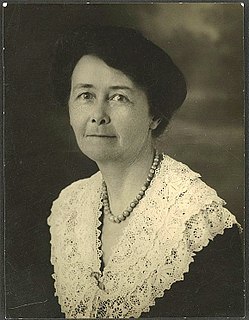A Quote by Mary Barnett Gilson
It is my conviction that in general women are more snobbish and class conscious than men and that these ignoble traits are a product of men's attitude toward women and women's passive acceptance of this attitude.
Related Quotes
When women's sexuality is imagined to be passive or "dirty," it also means that men's sexuality is automatically positioned as aggressive and right-no matter what form it takes. And when one of the conditions of masculinity, a concept that is already so fragile in men's minds, is that men dissociate from women and prove their manliness through aggression, we're encouraging a culture of violence and sexuality that's detrimental to both men and women.
Women have always been more critical of marriage than men. The great mysterious irony of it is - at least it's the stereotype - that women want to get married and men are trying to avoid it. Marriage doesn't benefit women as much as men, and it never has. And women, once they are married, become very critical of marriages in a way that men don't.
Many women, particularly young women, have claimed the right to use the most explicit sex terms, including extremely vulgar ones, in public as well as private. But it is men, far more than women, who have been liberated by this change. For now that women use these terms, men no longer need to watch their own language in the presence of women. But is this a gain for women?
Men create their own gods and thus have some slight understanding that they are self-fabricated. Women are much more susceptible, because they are completely oppressed by men; they take men at their word and believe in the gods that men have made up. The situation of women, their culture, makes them kneel more often before the gods that have been created by men than men themselves do, who know what they've done. To this extent, women will be more fanatical, whether it is for fascism or for totalitarianism.
Internationally and in foreign markets, movies starring women don't make as much money as movies starring men. And then you can blame filmmakers, especially in comedy, which is my bread and butter, because it's become a bit of a boys' club over the years. With the boys in charge you get these takes on women which are either the girlfriend or the mean wife or the girl who appears in a romantic comedy. You're just getting either men's fantasies about women or what they think is the reality about women instead of men just having a healthy attitude about women.
If you just look at the number of roles for women versus the number of roles for men in any given film, there are always far more roles for men. That's always been true. When I went to college, I went to Julliard. At that time - and I don't know if this is still true - they always selected fewer women than men for the program, because there were so few roles for women in plays. That was sort of acknowledgment for me of the fact that writers write more roles for men than they do for women.


































